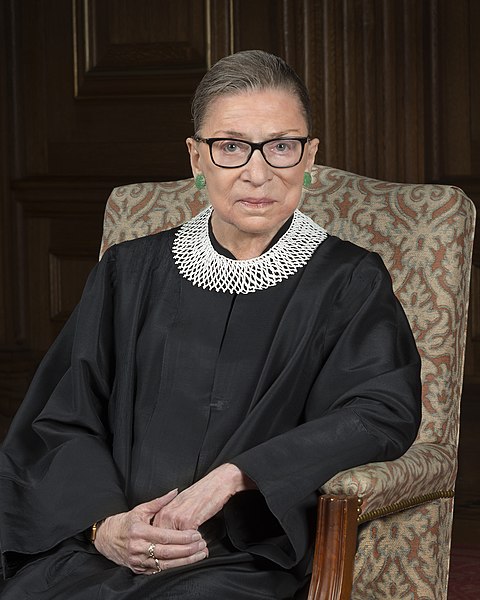 To repeat and second the dying words of Justice Ruth Bader Ginsburg, it is the most fervent wish of the Freedom From Religion Foundation that she will not be replaced until 2021.
To repeat and second the dying words of Justice Ruth Bader Ginsburg, it is the most fervent wish of the Freedom From Religion Foundation that she will not be replaced until 2021.
The nation’s second female Supreme Court justice, the tenacious feminist, civil rights pioneer and cultural icon lionized by young admirers as “the Notorious RBG” spent the final 27 of her 87 years as a justice defending the rights that FFRF and our membership cherish most. The way to mourn the loss of this champion and honor her life is to channel our collective grief and dismay into practical activism.
The election is happening now. Early voting and mail-in voting have already started in some states. Election Day itself is only 43 days away. For this reason, for reasons of common sense, parity and fairness, it’s essential that “We the People” should decide who will nominate Ginsburg’s replacement. That’s why the Senate should not consider a replacement for Justice Ginsburg until after the inauguration, as Ginsburg wisely counseled from her deathbed.
FFRF remembers Ruth Bader Ginsburg with admiration and gratitude for championing the clear separation of religion and government, particularly in our 2007 Hein case before the Supreme Court against the White House “faith-based” office. She became the court’s leading defender of state/church separation and of genuine religious freedom.
“Our Constitution was designed to separate church from the state,” she said in a recent interview. “Each should stay out of the other’s business.”
Ever the optimist, Ginsburg knew, “So often in life, things that you regard as an impediment turn out to be great, good fortune.” She endured condescension and sexist stereotyping when admitted as a woman to Harvard Law School, burning the midnight oil as a young mother and law student. The brainy standout was even refused a clerkship at the Supreme Court because of her gender. Yet a decade later, Ginsburg was pioneering, litigating and winning landmark gender discrimination cases before that court. She then went on to become only the second civil rights attorney (Thurgood Marshall was the first) to be seated on the Supreme Court, confirmed by a lopsided 96-3 Senate vote . The diminutive Ginsburg did not give up through three grueling bouts of cancer, even conducting oral arguments and overseeing her latest votes and decisions from her hospital bed. (Read Linda Greenhouse’s comprehensive obituary for more on Ginsburg’s inspiring story, one Ginsburg felt “could happen only in America” as the daughter of Jewish immigrants seeking freedom.)
In recent years, as the high court has turned increasingly reactionary, her brilliance in defense of our secular government and civil liberties shone through in succinct dissents, often written with devastating clarity. Last term, she dissented when the five conservative justices upheld a 30-foot-tall Christian cross in a Maryland traffic circle, writing: “As I see it, when a cross is displayed on public property, the government may be presumed to endorse its religious content. … Using the cross as a war memorial does not transform it into a secular symbol.” Her dissent in the recent Little Sisters decision that further empowered religious employers to deny workers contraceptive health care choices condemned the court for privileging religion over individual liberty: “Today, for the first time, the court casts totally aside countervailing rights and interests in its zeal to secure religious rights to the nth degree.”
Ginsburg dedicated her entire career, on and off the court, to providing “equal protection of the laws,” including for women, LGBTQ individuals, advancing justice for people of color and preserving our democracy. She often advised, “Fight for the things that you care about. But do it in a way that will lead others to join you.” FFRF invites you to join us in fighting like your rights depend on it, like your country depends on it . . . because they do.
As Ginsburg noted: “Real change, enduring change, happens one step at a time.” Take that step. Call both your senators to insist that they ensure that the people get to decide who appoints Ginsburg’s replacement.
Call 202-224-3121 now, even if — especially if — you think their votes are locked in. Then call them again tomorrow. And the day after that. And every day until Jan. 3, 2021.

